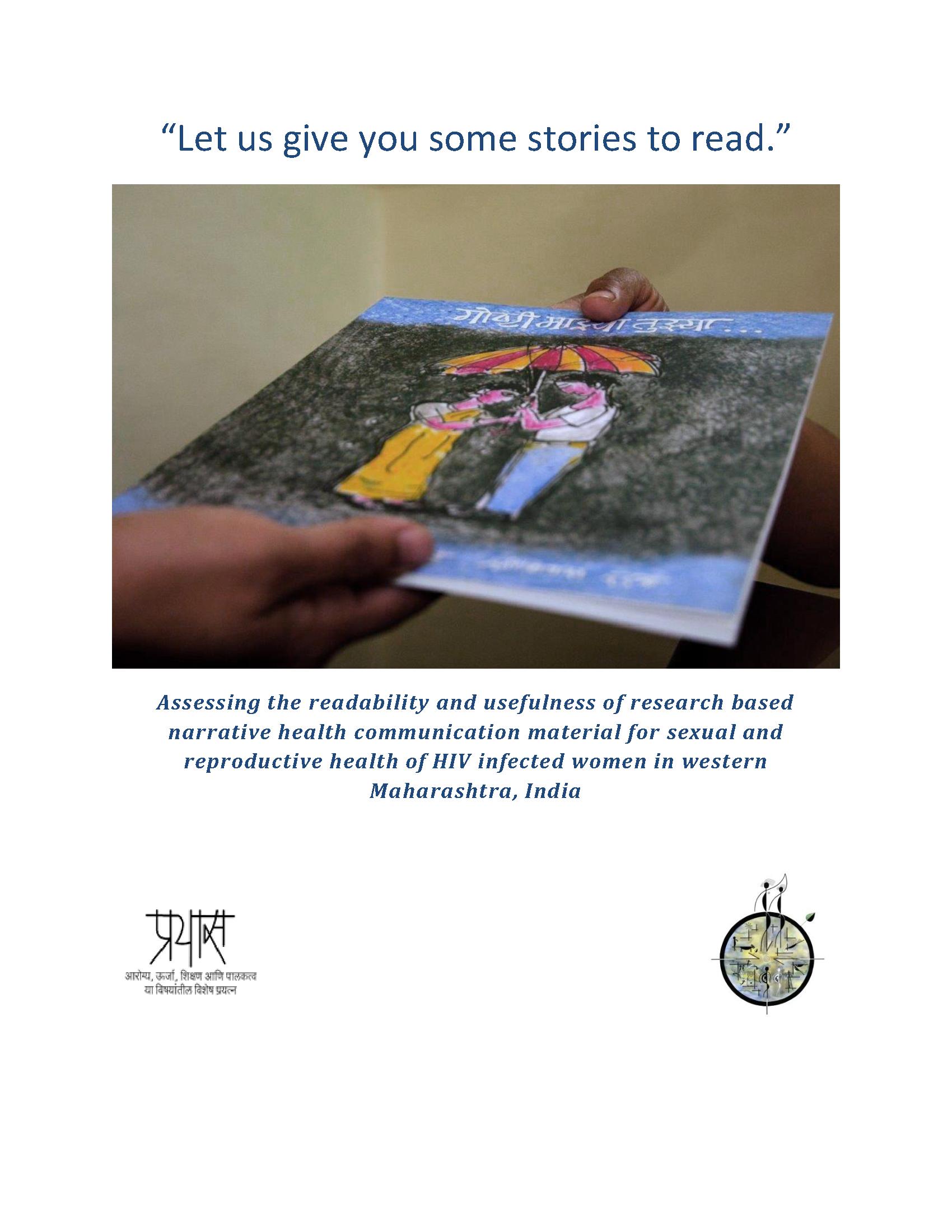Assessing the readability and usefulness of research based narrative health communication material for sexual and reproductive health of HIV infected women.
From 2008-till 2013, Prayas in collaboration with Population Research Centre, University of Groningen, undertook a research project to study reproductive career of HIV infected women from a life course perspective. This study documented high prevalence of unwanted pregnancies and induced abortions among women with HIV. It was found in the study that most unwanted pregnancies were due to lack of perceived need to use modern contraceptives along with condoms. The study highlighted the need to provide comprehensive reproductive health services to HIV infected women which probably need to go beyond the emphasis on condom use.
With an objective of reaching with the study findings to the women who participated in the study and to address some of challenges in SRH, Prayas prepared a book titled “Goshti Mazya Tuzya” (Stories-Yours and Mine) in Marathi. The book contains 7 narratives (stories) related to different SRH issues along with the struggle of men and women to deal with them positively. It also provides information regarding various contraceptive choices for PLHIV and issues to consider while planning a pregnancy. The book adopted a narrative communication approach to highlight some of the challenges mentioned by the women and proposes possible way forward regarding these issues.
This exploratory study assessed the readability of the book, the barriers for (not) reading it and explored the perceived usefulness of the book among HIV infected women. It also aimed at reaching the service providers (mainly counsellors) to emphasize the need for better as well as rights based communication on SRH issues with PLHIV. The report provides detailed results on readability and comprehensive of the books; barriers for reading it and its usefulness.
The qualitative assessment of the usefulness shows that the impact of the book has gone beyond SRH issues and has helped women in improving their self-efficacy, accepting their partners and improved coping by realizing that they are not alone and they are not different from other women. This study clearly shows the need for health communication which goes beyond aiming at specific behavior change among PLHIV. Based on the findings of the study an empirical model of narrative communication (including its possible negative consequences) is presented in the summary along with the recommendations for further research and practice.


